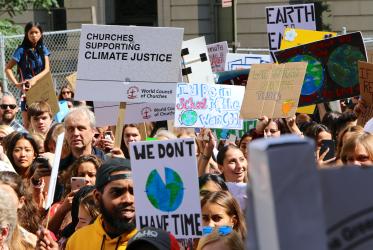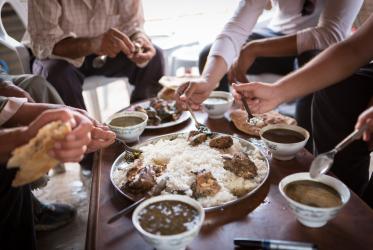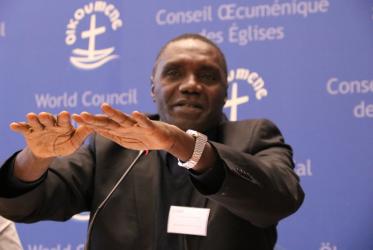Displaying 181 - 200 of 499
Dr Saïd Ailabouni: God is on the side of rejected, oppressed, occupied
12 September 2019
WCC represented at G20 Interfaith forum in Tokyo
13 June 2019
Agreement works toward food security in South Sudan
23 February 2019
10 years of Patriarchal leadership celebrated in Moscow
01 February 2019
Fr Alexi - a peacemaker in Syria
21 December 2018
Dr Cecile De Sweemer, the doer of God
30 November 2018






